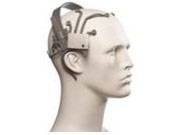
Sep
What It Means to Choose or Decide In The Age of AI
jerry9789 0 comments artificial intelligence, Burning Questions
Longstanding Concerns Over AI
From an open letter endorsed by tech leaders like Elon Musk and Steve Wozniak which proposed a six-month pause on AI development to Henry Kissinger co-writing a book on the pitfalls of unchecked, self-learning machines, it may come as no surprise that AI’s mainstream rise comes with its own share of caution and warnings. But these worries didn’t pop up with the sudden popularity of AI apps like ChatGPT; rather, concerns over AI’s influence have existed decades long before, expressed even by one of its early researchers, Joseph Weizenbaum.
ELIZA
In his book Computer Power and Human Reason: From Judgment to Calculation (1976), Weizenbaum recounted how he gradually transitioned from exalting the advancement of computer technology to a cautionary, philosophical outlook on machines imitating human behavior. As encapsulated in a 1996 review of his book by Amy Stout, Weizenbaum created a natural-language processing system he called ELIZA which is capable of conversing in a human-like fashion. When ELIZA began to be considered by psychiatrists for human therapy and his own secretary interacted with it too personally for Weizenbaum’s comfort, it led him to start pondering philosophically on what would be lost when aspects of humanity are compromised for production and efficiency.
Copyright chenspec (Pixabay)
The Importance of Human Intelligence
Weizenbaum posits that human intelligence can’t be simply measured nor can it be restricted by rationality. Human intelligence isn’t just scientific as it is also artistic and creative. He remarked with the following on what a monopoly of scientific approach would stand for, “We can count, but we are rapidly forgetting how to say what is worth counting and why.”
Weizenbaum’s ambivalence towards computer technology is further supported by the distinction he made between deciding and choosing; a computer can make decisions based on its calculation and programming but it can not ultimately choose since that requires judgment which is capable of factoring in emotions, values, and experience. Choice fundamentally is a human quality. Thus, we shouldn’t leave the most important decisions to be made for us by machines but rather, resolve matters from a perspective of choice and human understanding.
AI and Human Intelligence in Market Research
In the field of market research, AI is being utilized to analyze a multitude of data to produce accurate and actionable results or insights. One such example is deep learning models which, as Health IT Analytics explains, filter data through a cascade of multiple layers. Each successive layer improves its result by using or “learning” from the output of the previous one. This means the more data deep learning models process, the more accurate the results they provide thanks to the continuing refinement of their ability to correlate and connect information.
While you can depend on the accuracy of AI-generated results, Cascade Strategies takes it one step further by applying a high level of human thinking. This allows Cascade Strategies to interpret and unravel insights a machine would’ve otherwise missed because it can only decide, not choose.
Take a look at the market research project we performed for HP to help create a new marketing campaign. As part of our efforts, we chose to employ very perceptive researchers to spend time with worldwide HP engineers as well as engineers from other companies.
This resulted in our researchers discovering that HP engineers showed greater qualities of “mentorship” than other engineers. Yes, conducting their own technical work was important but just as significant for them was the opportunity to impart to others, especially younger people, what they were doing and why what they were doing was important. This deeper level of understanding led the way for a different approach to expressing the meaning of the HP brand for people and ultimately resulted in the award-winning and profitable “Mentor” campaign.
If you’re tired of the hype about AI-generated market research results and would like more thoughtful and original solutions for your brand, choose the high level of intuitive, interpretive, and synthesis-building thinking Cascade Strategies brings to the table. Please visit https://cascadestrategies.com/ to learn more about Cascade Strategies and more examples of our better thinking for clients.

Aug
The Impact of AI
In The Age of AI, which Henry Kissinger co-wrote with Eric Schmidt and Daniel Huttenlocher, Kissinger tried to warn us that AI would eventually have the capability to come up with conclusions or decisions that no human is able to consider or understand. Put another way, self-learning AI would become capable of making decisions beyond what humans programmed into it and base such conclusions on what it deems the most logical approach, regardless of how negative or devastating the consequences can be.
A common example to illustrate this point is how AI had already transformed games of strategy like chess, where given the chance to learn the game for itself instead of using plays programmed into it by the best human chess masters, it executed moves that have never crossed the human mind. And when playing with other computers that were limited by human-based strategies, the self-learning AI proved dominant.
When applied to the field of warfare, this could possibly mean AI proposing or even executing the most inhumane of plans regardless of human disagreement simply because it considers such a decision the most logical step to take.
The Influence of AI
As part of Kissinger’s warning, it’s been noted just how far-reaching AI’s influence already is in modern life, especially with its usage in innocuous things such as social media algorithms, grammar checkers, and the much-hyped ChatGPT. With the growing dependency on AI, there runs the risk of human thinking being eclipsed by machine-based efficiency and effectiveness. And how it arrives at such efficient and effective decisions becomes questionable because it could become difficult or near impossible to trace what it has learned along the way.
Just imagine someone making a decision influenced by the information fed to them by AI and yet failing to rationalize the thinking behind such a decision. That particular human may not realize it, but at that point they’re living in an AI world, where human decision-making is imitating machine decision-making rather than the reverse. It was this interchangeability Alan Turing was referring to with his famous postulate about artificial intelligence — the so-called “Turing Test” — which holds that you haven’t reached anything that can be fairly called AI until you can’t tell the difference.
Copyright Pavel Danilyuk
Appropriate Use of AI
However, it’s been pointed out that the book doesn’t follow “AI fatalism,” a common belief wherein AI is inevitable and humans are powerless to affect this inevitability. The authors wrote that we are still capable of controlling and shaping AI with our human values, its “appropriate use” as we at Cascade Strategies have been advocating for quite some time. We have the opportunity to limit or restrain what AI learns or align its decision-making with human values.
Kissinger had sounded the warning while others had already made calls to start limiting AI’s capabilities. We are hopeful that in the coming years, with the best modern thinkers and tech experts at the forefront, we progress to more of an AI-assisted world where human agency remains paramount instead of an AI-dominated world where inscrutable decisions are left up to the machines.











